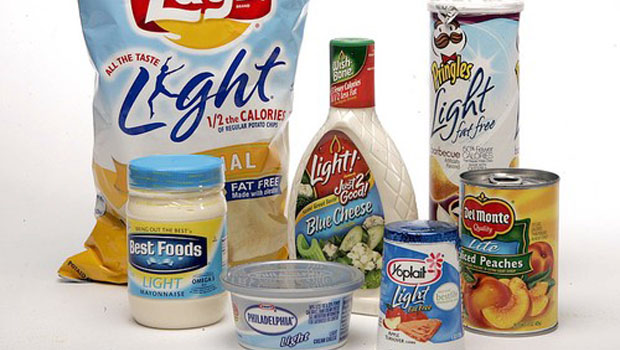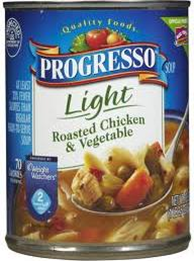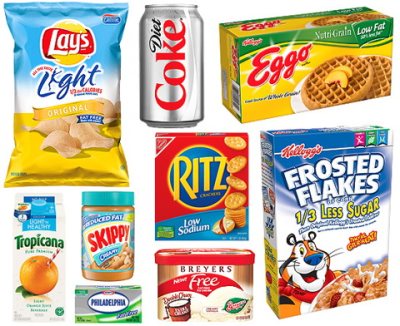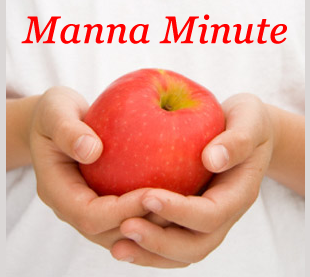
Shedding Light on “Lite”
 What do you think of when you see the word “Light” on a food package? It might make you think the food is low-fat and nutritious—and that it will make you feel light, too.
What do you think of when you see the word “Light” on a food package? It might make you think the food is low-fat and nutritious—and that it will make you feel light, too.
On Manna’s grocery store tours, I find that clients genuinely want improve their diet. If they don’t have the personal motivation, there is often deep concern about the health of loved ones. Shoppers believe–because it seems reasonable–that health claims on food packages are the best way to determine which foods are healthier.
The truth is: “low-fat” cookies, oatmeal packets, crackers, frozen meals, soups and other packaged foods are often higher in refined carbohydrates, salt and sugar. These components, rather than calories or grams of fat, are serious culprits in increased chronic diseases linked to the Western diet.
 “Light” and “Low-fat” products are deceiving. This “Light” can of “lower-sodium roasted chicken soup” (pictured here) has 920mg of sodium in this one can—that’s nearly half a teaspoon! Sodium, another word for salt, makes the body retain water, and can lead to heart disease, high cholesterol, and weight gain—that doesn’t sound like it fits the word Light! Grab one of those Low Calorie frozen dinners off the shelf and flip over to the nutrition label for a true shock.
“Light” and “Low-fat” products are deceiving. This “Light” can of “lower-sodium roasted chicken soup” (pictured here) has 920mg of sodium in this one can—that’s nearly half a teaspoon! Sodium, another word for salt, makes the body retain water, and can lead to heart disease, high cholesterol, and weight gain—that doesn’t sound like it fits the word Light! Grab one of those Low Calorie frozen dinners off the shelf and flip over to the nutrition label for a true shock.
Here the scoop: Buy fresh food without flavorings—plain oatmeal, plain yogurt, plain rice—and add your own vegetables, protein, spices and seasonings for true “light” and healthy eating.
If you’re someone who needs more specific advice on Light eating, try this…
CARBOHYDRATES: Emphasize natural, nutrient-dense carbohydrates from fruits and vegetables, beans and legumes, and whole grains. Think fiber. Skip sweetened beverages, desserts and refined (often white-flour) grain products.
SUGAR: Sugar occurs naturally in some foods, including fruits, vegetables, milk and some grains. Skip those added sugars: sweetened beverages, desserts and refined (often white-flour) grain products.
 SODIUM: Most Americans get far too much sodium in their daily diets and need to cut back. Reduce sodium in your diet by limiting processed and prepared foods–aim for the number closest to zero. Also avoid salty condiments. Even sweets (like sugary cereals and soda) have loads of sodium. Skip sweetened beverages, desserts and refined (often white-flour) grain products.
SODIUM: Most Americans get far too much sodium in their daily diets and need to cut back. Reduce sodium in your diet by limiting processed and prepared foods–aim for the number closest to zero. Also avoid salty condiments. Even sweets (like sugary cereals and soda) have loads of sodium. Skip sweetened beverages, desserts and refined (often white-flour) grain products.
Seeing a pattern?
These are important tips to keep in mind when you’re at the store buying food for your family or for families in the community. Check out Manna’s healthy food wish list.
Dietary guidelines from here.


Engage us on Facebook
Follow us on Twitter
Tweets by @mymcmedia